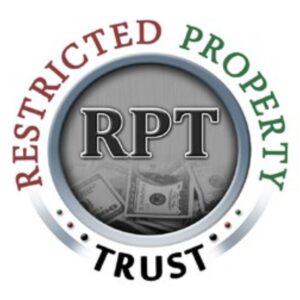Securing Your Future: How Restricted Property Trusts Fortify Your Assets
Securing Your Future: How Restricted Property Trusts Fortify Your Assets
Blog Article

In the ever-changing world of finance the need to safeguard your assets has become more critical than ever. Restricted Property Trusts (RPTs) provide a method to safeguard your financial security, providing a robust mechanism to protect your assets from potential risks and uncertainty. Restricted Property Trust function and their advantages as a tool in asset protection.
What Are Restricted Property Trusts?
The Restricted Property Trust is a specially designed financial vehicle that is intended to protect and manage important assets, with certain limitations on their use as well as transfer. Contrary to traditional trusts RPTs impose certain limitations on how the assets can be accessible or distributed. This provides a level of security against potential claims and legal problems.
Key Benefits of Restricted Property Trusts
1. Improved Asset Protection The primary benefits of RPTs is their protection of assets from creditors, lawsuits, and other financial threats. When assets are placed in an RPT, individuals can safeguard their assets from financial or legal disputes, and ensure that their assets are protected.
2. Tax Advantages: RPTs can provide tax benefits that are significant. Contributions to the trust could be tax deductible, while the income generated through the trust's assets could enjoy favorable tax treatment. This could lead to substantial tax savings over time, which can improve the financial stability that the trust member enjoys.
3. Strategic Estate Planning: RPTs play a crucial function in estate planning by allowing individuals to transfer their assets to beneficiaries, while keeping the control over when and how those funds are divided. This helps reduce estate taxes and eliminate the complexities of probate and streamline the transfer of wealth.
4. Controlled distribution: In spite of limitations, RPTs offer flexibility in asset management. The trustees will be given specific instructions on how they should manage the assets, while ensuring that they are used according to the individual's financial goals and plans from the past.
Setting Up a Restricted Property Trust
Making an RPT requires many steps. Begin by consulting an advisor in the field of financial planning or an estate planning lawyer who is skilled in RPTs to create a trust that meets the specific requirements of your situation. The trust documents will define the limitations on asset use and transfer, as well as specify the roles and responsibilities of the trustees.
Regular updates and reviews of the RPT may be necessary to ensure that the RPT continues to meet your financial goals and is able to adapt to changes in your circumstances.
Conclusion
Restricted Property Trust offer a method of strengthening your assets and enhancing the security of your finances. Through the unique advantages of RPTs, you'll be able to secure your wealth, benefit from potential tax advantages and speed up your estate planning process. Consultation with a expert is vital to tailor the trust to your particular requirements, making sure that assets remain adequately protected and your financial future is secure. Embrace the potential of RPTs to build a robust base for long-term financial stability along with peace of head. Report this page